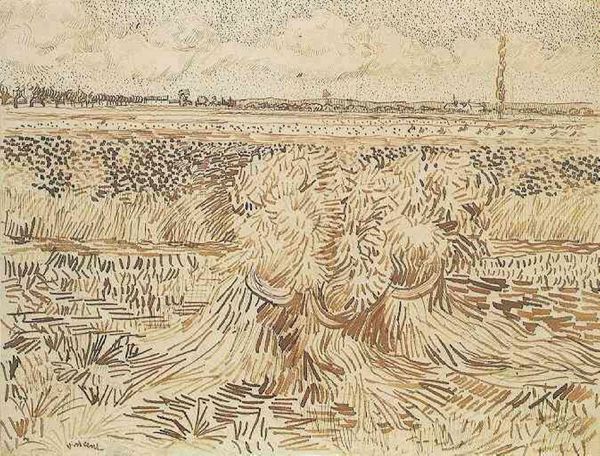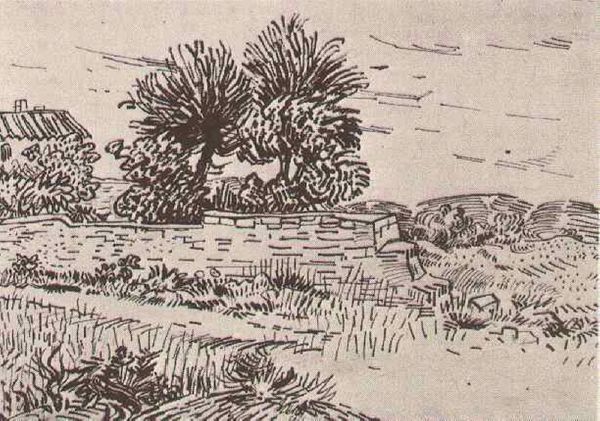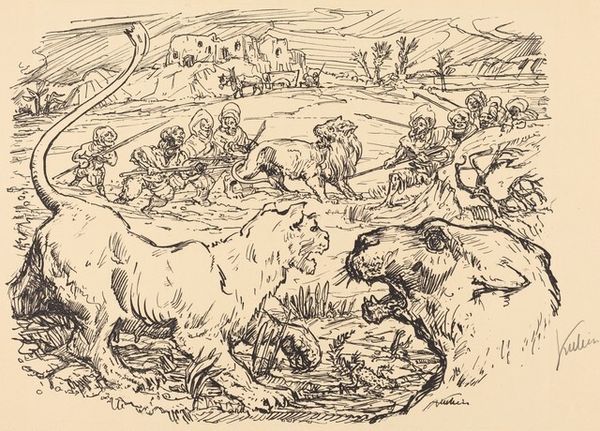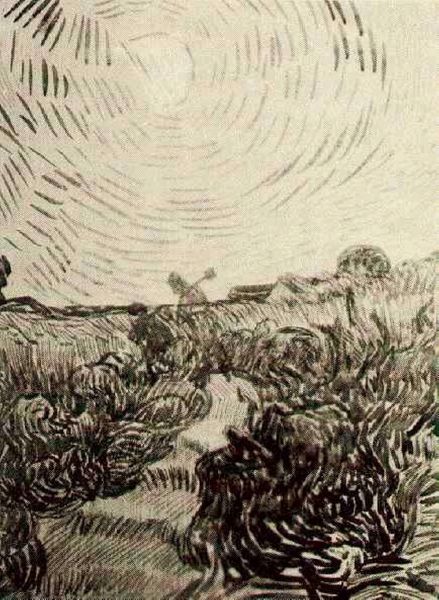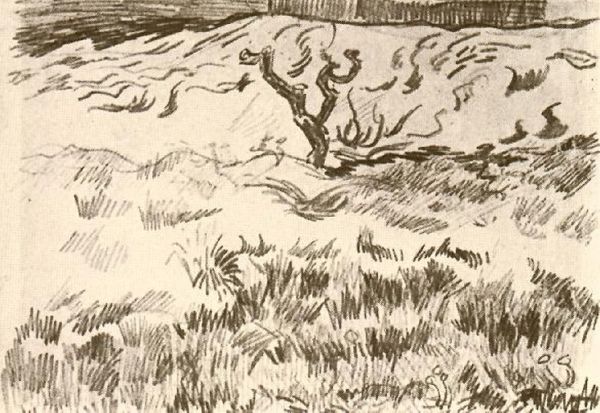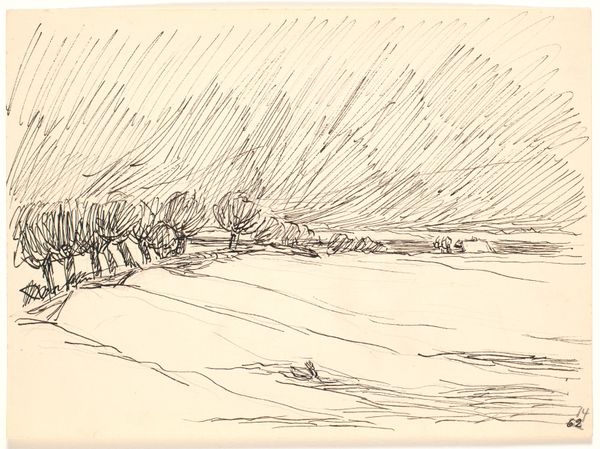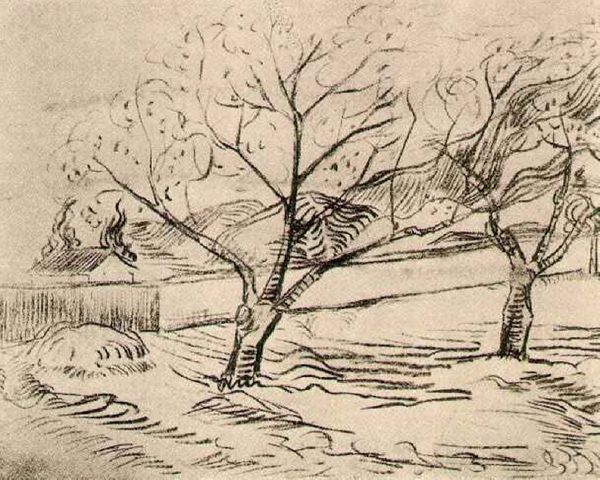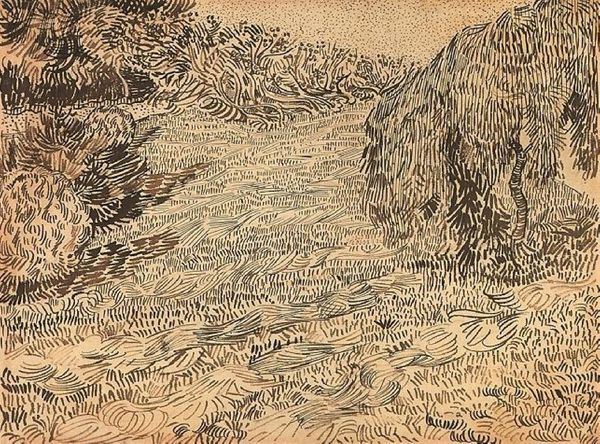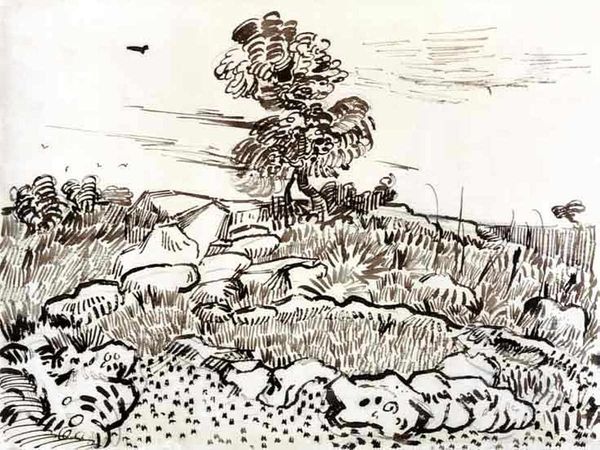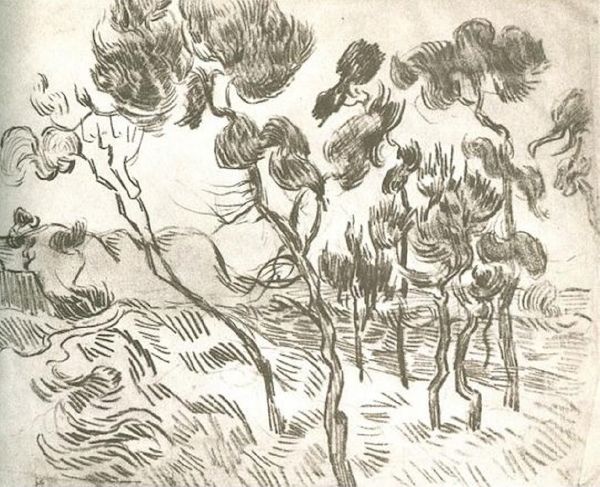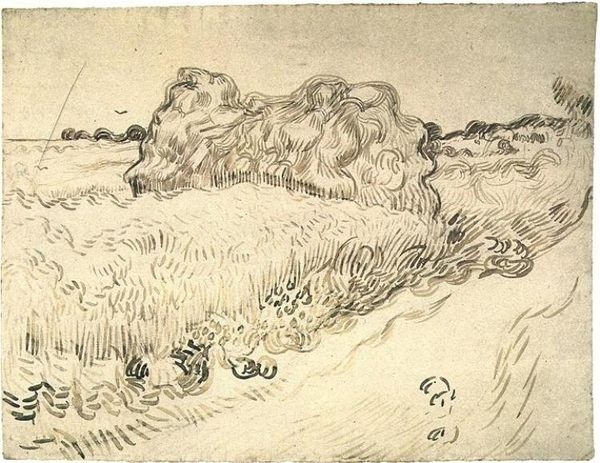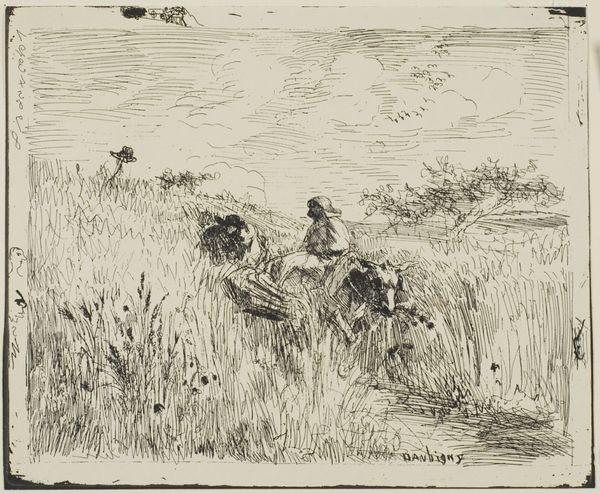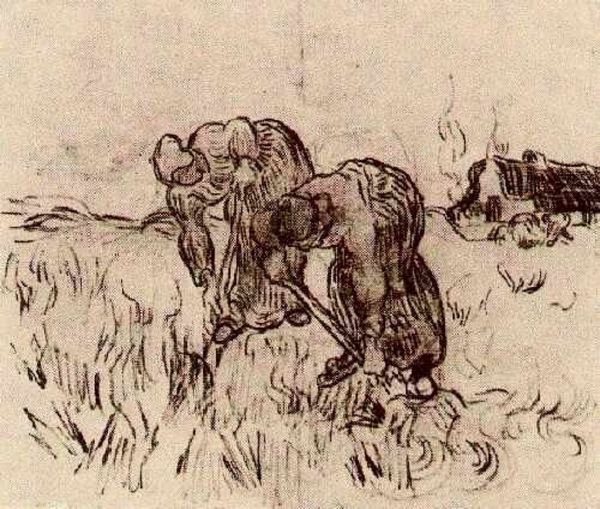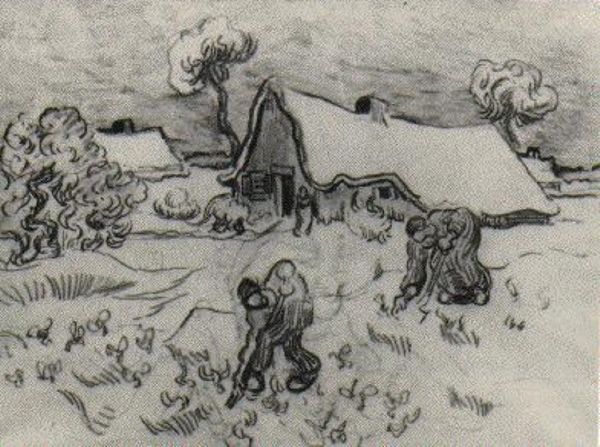
drawing, ink, pen
#
drawing
#
ink drawing
#
pen drawing
#
impressionism
#
landscape
#
ink
#
sketch
#
pen
#
realism
Copyright: Public domain
Vincent van Gogh captured this drawing of 'Wheat Field with Sheaves' using reed pen and brown ink on paper. Van Gogh, often walking alone through the fields, developed a deep connection with the working class and the land. His choice to depict rural scenes was deeply intertwined with the social realities of 19th-century Europe, marked by rapid industrialization and urbanization. The focus on the wheat field becomes more than just a landscape; it is a representation of labor, sustenance, and the cyclical nature of life. Van Gogh’s humble roots and his sensitivity towards the struggles of rural communities resonate in his art. The sheaves, symbols of harvest and abundance, hint at the culmination of hard work, yet the stark, linear style suggests an alternative narrative, one that acknowledges the emotional weight of agricultural life. It prompts us to consider the social value placed on rural labor and its representation in a changing world.
Comments
No comments
Be the first to comment and join the conversation on the ultimate creative platform.
